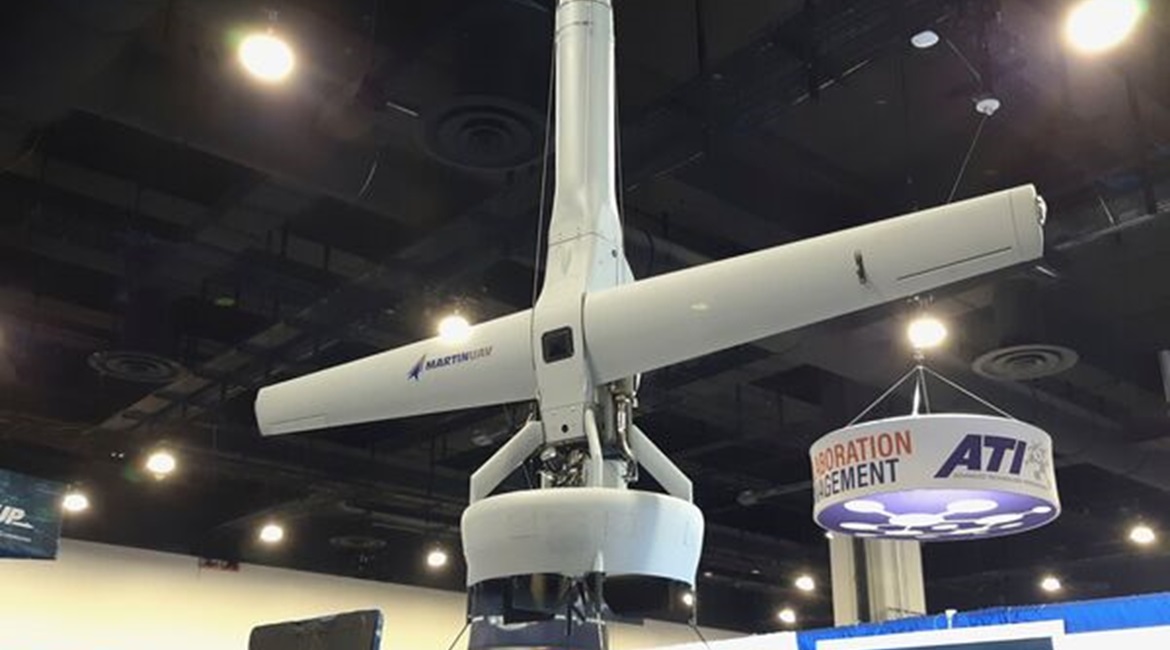
Martin UAV revealed its V-Bat 128 vertical take-off and landing (VTOL) tail-sitting fixed-wing unmanned aerial vehicle (UAV) with a static display model at the Navy League's 2021 Sea-Air-Space exposition held in Maryland from 2–4 August. Shield AI on 28 July announced an agreement to acquire Martin UAV.

The Martin UAV V-Bat 128 vertical take-off and landing (VTOL) tail-sitting fixed-wing unmanned aerial vehicle (UAV) on display at the Navy League's 2021 Sea-Air-Space exposition on 3 August 2021. (Janes/Pat Host)
Heath Niemi, Shield AI vice-president of business development and former Martin UAV chief development officer, told Janes on 3 August that the V-Bat 128 has a slightly larger duct, a new Suter TOA288 engine, a 23 cm extender, and a new Trillium HD 80 gimbal serving as the aircraft's primary payload. The V-Bat 128's new duct, roughly 10 cm wider in diameter, provides for a slightly larger propeller and allows for additional thrust.
The new engine, Niemi said, provides an additional 11 hp than the previous engine used in the V-Bat 118, or block zero model, while also providing more payload capacity. The V-Bat 128 now weighs about 57 kg with 11 kg of useable payload and 11 hours of endurance. Niemi said this disrupts a UAV rule of thumb called the 10% equation: a 91 kg aircraft provides about 9 kg of payload with eight hours of fuel.
“We are starting to really breakthrough that 10% rule and provide a smaller tactical punch (with) more capacity,” Niemi said.
Looking to read the full article?
Gain unlimited access to Janes news and more...




